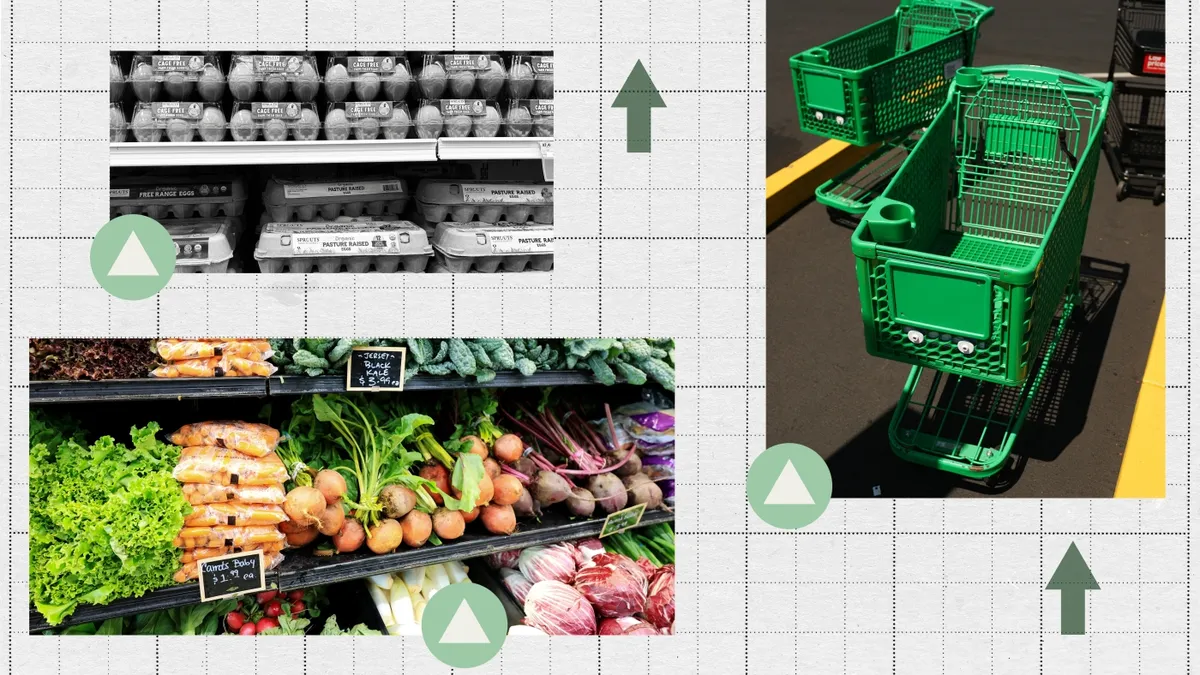
NPR's insightful series, Cost of Living: The Price We Pay, is diving deep into the factors fueling price increases and exploring how individuals are adapting after enduring years of persistent inflation. A crucial question arises: How are higher prices transforming your daily life? NPR invites you to share your experiences through their form.
One of the most notable items affected is groceries. According to the Bureau of Labor Statistics, grocery prices have surged by 29% since February 2020. This dramatic increase has left many consumers grappling with how to afford basic necessities.
The initial supply chain disruptions caused by the COVID-19 pandemic significantly impacted grocery prices. As restaurants closed and families were forced to prepare three meals at home daily, demand for home-cooked food soared. This situation was further exacerbated in 2022 by Russia's invasion of Ukraine, which led to a global rise in food prices. Additionally, outbreaks of avian flu have contributed to the recent spike in egg prices. Moreover, President Trump's tariffs are driving up the costs of imported foods such as bananas and coffee, further straining consumers' budgets.
For individuals like Shelia Fields, a resident of Galveston, Texas, the quest for affordable food has evolved into what feels like a full-time job. “Just yesterday, we visited three different stores in town, purchasing only items that were on sale. We didn’t buy any meat because it’s just too expensive,” Fields explains. She and her husband, both retired nurses, express their concerns about outliving their savings. “We’re not going hungry,” she states, “but we experience anxiety regarding our financial situation and the future of our children and grandchildren.” Fields reflects on their past experiences with recessions, noting, “We’ve been through a lot, and this is the most frightened we’ve ever been.”
Fields' concerns are echoed by many. A recent survey conducted by The Associated Press and NORC revealed that more than half of Americans feel grocery costs have become a major source of stress, surpassing concerns about rent, health care, and student debt.
Rebecca White, a bank employee from Cincinnati, shares her struggle to keep up with rising grocery prices. She notes that her paycheck has not kept pace with her increasing grocery bills, leading her to rummage through her cupboards for food and rely heavily on inexpensive meals like spaghetti. “I often skip breakfast to save money,” White admits. The Kroger supermarket chain has observed similar trends among its customers, who are making smaller, more frequent trips to the store, using coupons, and opting for cheaper private-label products.
White expresses her skepticism about seeing any relief at the grocery store checkout. “Once prices go up, they rarely come back down,” she remarks. The double-digit price hikes triggered by the pandemic and geopolitical tensions have shocked consumers accustomed to stable grocery prices for decades. “Food is a very personal issue,” states David Ortega, a food economist at Michigan State University.
Grocery prices have become a significant political concern recently. Former President Trump has frequently highlighted the frustrations of shoppers regarding rising food costs, claiming it contributed to his political comeback. “Grocery prices skyrocketed, and I campaigned on that,” Trump stated during a White House event. However, despite his promises to lower prices, the overall grocery costs have increased since his administration began.
Trump's policies, particularly his crackdown on illegal immigration, have added pressure on food prices. Furthermore, his tariffs on imported goods are contributing to higher costs for staples like bananas and coffee. “Tariffs are essentially a tax on imported goods,” Ortega explains, leading to increased prices for consumers at grocery stores. Notably, coffee prices have surged by over 20% in the past year, partly due to adverse weather conditions in major coffee-producing countries and the impact of tariffs.
Shelia Fields has taken action by stocking up on coffee when the tariffs were announced. However, she is uncertain about her options once her supply runs out. “We haven’t bought coffee in a month, and prices are just going up,” she laments with a rueful laugh. “We’re down to one cup in the morning, and I really hate to give that up.”
As grocery prices continue to rise, the challenges faced by consumers like Fields and White highlight the broader impact of economic factors on everyday life. NPR's series on the Cost of Living aims to shed light on these issues, encouraging individuals to share their stories and experiences.